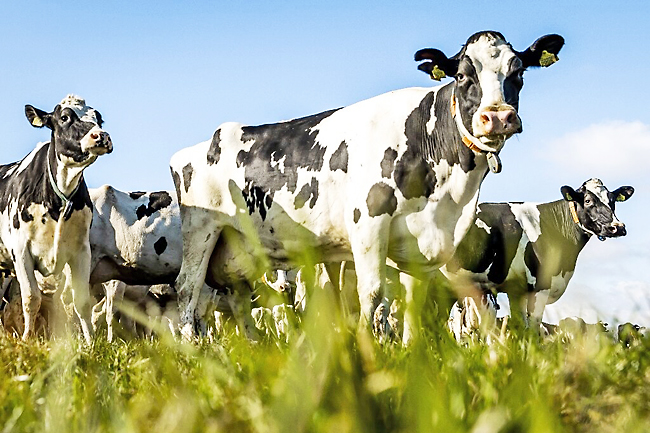RIEL, NETHERLANDS (AFP) – In the flat expanse of the Dutch countryside, Corne de Rooij nostalgically strokes the muzzles of his calves, wondering how long he will be able to keep them.
Livestock farming is one of the main emitters of greenhouse gases in the Netherlands, where climate change threatens to swallow up the low-lying fields.
“It’s my passion and my life,” the reserved 53-year-old said in a small voice in his stable in the southern Netherlands, where he raises calves and chickens.
“If we have to stop raising them, it will hurt.”
Dutch farmers have found themselves pushed to the wall by the government, which is offering them a final choice to make their farms more climate-friendly, or change jobs.
The new coalition government wants to release EUR25 billion (USD28 billion) by 2035 to help reduce herd sizes and reduce emissions of nitrogen, a greenhouse gas emitted particularly by fertilisers and manure.

The small, densely populated country of 17.5 million people is also densely populated with animals: nearly four million cattle, 12 million hogs and 100 million chickens.
The Netherlands is the world’s second biggest agricultural exporter after the United States, but agriculture is responsible for 16 per cent of the Netherlands’ greenhouse gas emissions.
Cows are also major emitters of methane, a potent greenhouse gas, from their digestive systems.
The government aims to help farmers diversify their business, to retrain, to innovate or even to relocate if their farm is near a protected natural area.
But if they fail to comply, the government has warned it could even take the very sensitive step of expropriating land from recalcitrant farmers.
The government insists it has no choice. Huge construction projects aimed at tackling a housing shortage have already been suspended by the supreme court in a case brought by environmental groups over greenhouse gas emissions.
By pushing the agricultural sector to accelerate the climate transition, the government hopes to be able to resume some of these building projects, while reducing nitrogen emissions by 50 per cent by 2030.
Overall, the Dutch have realised that their country is too small to do everything at once: farming, a huge flower producing industry, one of Europe’s biggest airports at Schiphol in Amsterdam, a dense road network, housing for everyone plus, in the middle of it all, nature zones.


